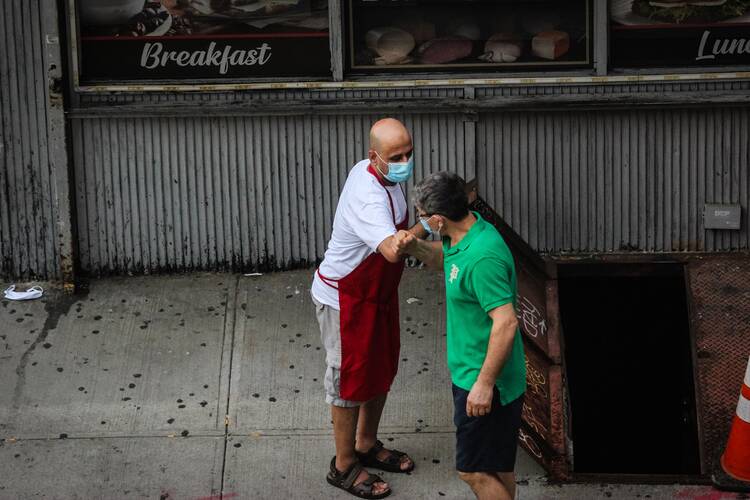Reflection for Monday of the Twenty-Seventh Week in Ordinary Time
“If I were still trying to please people, I would not be a slave of Christ.”
Who is my neighbor? I grew up in the suburbs. Our neighbors pretty much stayed the same at the two houses I remember. I made friends with the kids my age: Rodolfo, Javier and Jassip at the first and J.J. and Mike at the second. They weren’t perfect friends or anything, but I loved them the way kids love their friends. It came naturally.
Today, my family lives in a complex of condos. A family of four—like us—moved in nearby last January. They’re from Afghanistan and we became fast friends. In a way, they’re like the kids from my childhood: easy to love.
Before they got a car, we’d help with rides and that kind of thing. They’ve had us over for delicious, traditional Afghan meals. Our littlest one loves the mother of the family so much, he runs to her when he sees her and she kisses him all over his face. That neighborly love, despite the differences in culture and language, just happens.
Jesus calls me to recognize the human dignity of everyone I meet, especially when it’s hard to see. I must set aside preconceptions that stand in the way.
On the other hand, we’ve had plenty of neighbors that are tough to love. The first time one of our neighbors saw our newborn, she decided to forgo the traditional “Congratulations,” and said, “Alrighty then.” Another neighbor is a germaphobe who won’t so much as get out of her car when anyone else is within 100 feet of it. Needless to say, we don’t know her name yet.
The couple who used to live right next door with their dogs seemed not to waste any time on house cleaning. We could smell dog urine whenever we stepped outside our front door. A few guys used to share the place on the other side of us and had a habit of hosting loud parties. Down the path a bit, a couple would constantly get into yelling matches outside, late at night. And I’m pretty sure we have a drug dealer in the complex.
It’s easy to distance myself from these prickly characters, but they are also our neighbors. In the Samaritan, Jesus gives me the model I must emulate in my relationship with them. Jesus calls me to recognize the human dignity of everyone I meet, especially when it’s hard to see. I must set aside preconceptions that stand in the way.
I can’t be friends with my neighbors if they don’t want to be friends with me. But Jesus is asking me to treat my neighbors with mercy. If I ever cross their path when they are in need, I must not hesitate. Despite our differences, I must love them as I love myself.








